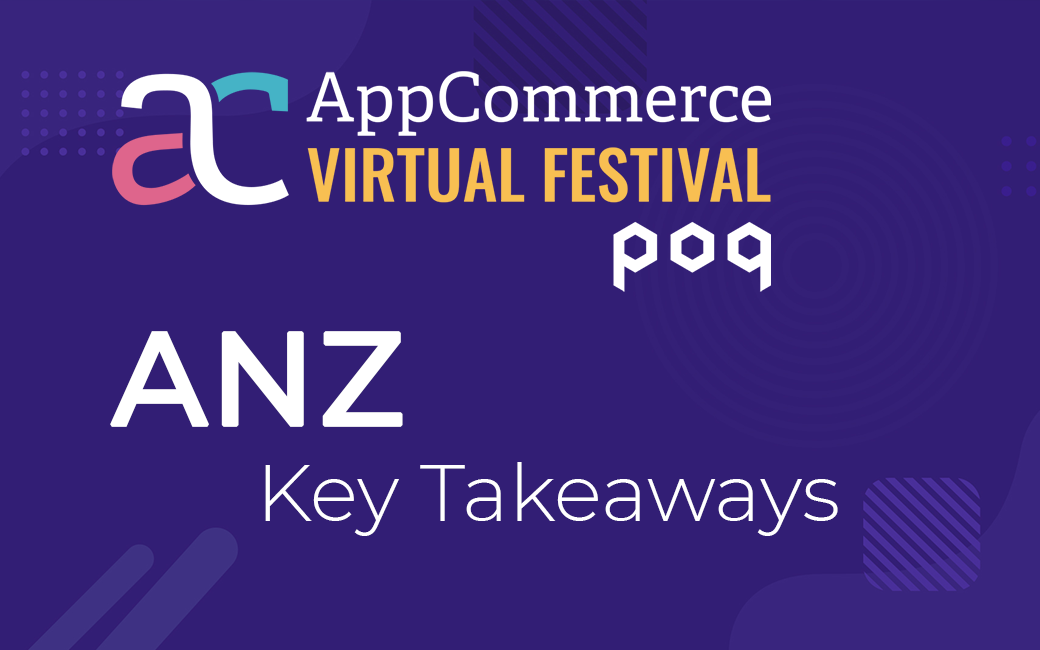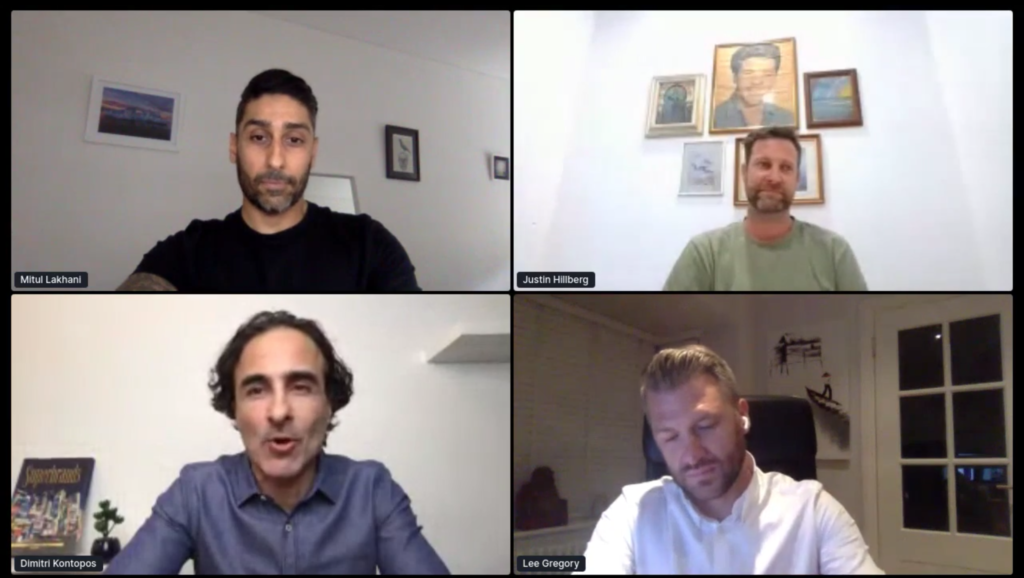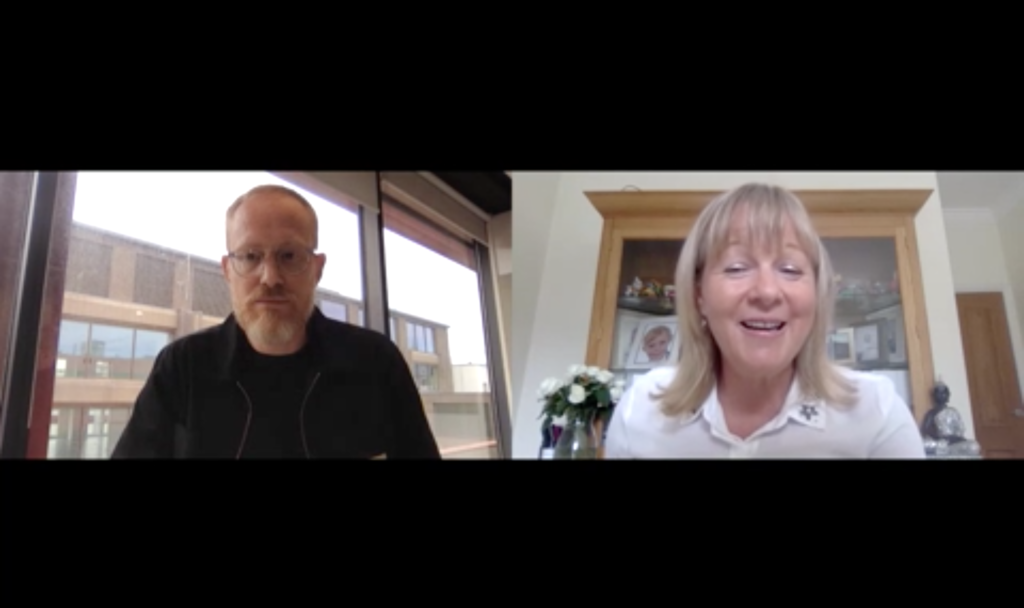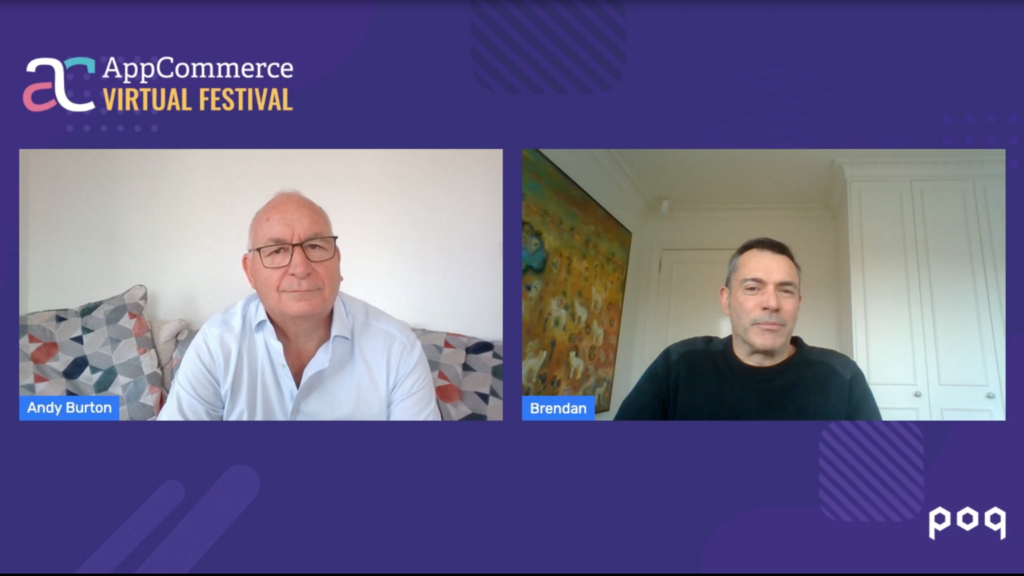ANZ – AppCommerce Virtual Festival 2020 Round-up

Thanks to all of those who joined us across the two days of content in Australia and New Zealand at the AppCommerce Virtual Festival. We had some great speakers and panelists including the likes of Kurt Geiger, Cotton On, SurfStitch and Alceon. To recap what was covered or to catch-up on the sessions you missed, read the highlights below.
An Interview with Richard Facioni, Executive Director, Alceon Group
Richard Facioni – Executive Director at Alceon Group
Lauretta Roberts, Co-Founder, CEO & Chief at TheIndustry.fashion
Richard Facioni joined Lauretta Roberts on the main stage to share his insights into how investors value digital transformation and the power of apps in retail. During COVID the consumer behaviour shift to online has been both a push and a pull. Apps are so important now, because there are more communications going out to consumers digitally through email and social, making it increasingly cluttered and harder to get noticed. Apps enable retailers to stand out and have direct 1:1 relationship with customers and is a channel of communication that customers have opted into.
When investing in a business, Richard advised that they look for a business to have ‘good bones’ and a defined market. At Alceon, they consider how to generate value in addition to BAU to improve the business. Especially focussing on the cost of doing business & efficiencies and gross margins through sourcing, and avoiding putting up prices, which are all things within their control.

The Value of Apps to Grow Sales and Build Customer Loyalty
Justin Hillberg, Managing Director at SurfStitch
Mitul Lakhani, Head of Digital Product at Showpo
Lee Gregory, Head of Sales, UK & ANZ at Poq
Dimitri Kontopos, Director – Digital Strategy at Tryzens
In the first panel for Australia and New Zealand, the retail experts discussed how a brand or retailers’ most loyal customers typically use their app. In terms of measuring the success of this Lee recommended that brands should aim for an App Store Rating of 4.5 stars and above. Mitul went on to add that nailing the basics of an app to create a flawless shopping experience was the most important first hurdle, before tackling what Lee referred to as ‘hook’ features.
Lee elaborated on this, identifying that if retailers want to keep churn to a minimum and keep customers engaged their apps, at the very least, need to be fast, persistent and easy to navigate. If shoppers experience lots of friction they will easily close the app and look elsewhere.
Mitul added that push notifications are great at driving re-engagement and that segmentation and personalisation are key. This includes sending push notifications based on consumer behaviour and giving shoppers the choice to opt into the types of notifications they would like to receive. Finally, Mitul added that running ‘ASOS-esque’ app exclusive offers, like discount codes or early access to new product drops, are a great way to drive loyalty through the app.

AppRising: Story of Growth: An Interview with Kurt Geiger
Gareth Rees-John – Director of Digital, Kurt Geiger
Gareth joined Poq’s CRO, Helen Slaven on the Main Stage to discuss how Kurt Geiger and it’s brands customers shopped before and during the pandemic. With a 45% digital / 55% store split for sales before COVID and digital skyrocketing when stores shut, Gareth went on to explain how the business rapidly changed it’s priorities in response to the pandemic and changing consumer behaviour.
Over the pandemic, instead of resorting to discounting, the Kurt Geiger brand choe to double down on retaining and engaging it’s loyal customer base. Promoting it’s core values and with the We Are One campaign and offering discounts for NHS workers out of appreciation for the hard work they have been doing. Kurt Geiger embraced the D2C approach and quickly and rapidly changed the content it served to consumers especially through App Stories within the app.
Gareth went on to explain the reasoning behind Kurt Geiger’s decision to go with an app platform to create it’s app instead of a building in house, enabling the business to continue its’ focus on selling shoes and utilising the expertise and resources of Poq in order to launch an app within 12 weeks. For retailers considering launching an app, Gareth recommended that they thoroughly map out a business plan that makes sense for their own business and really scrutinise the numbers to ensure an app will work for you.

Creating an Unrivalled Omnichannel Experience, an interview with Cotton On Group
Brendan Sweeney, Group Managing Director Ecommerce at Cotton On
Andy Burton, CEO at Tryzens
A year on since Brendan joined us at AppCommerce 2019 hosted in London, Cotton On has launched both iOS and Android apps across Australia, New Zealand and North America. Andy checked in with Brendan to get an update on the performance of the Cotton On apps.
Brendan explained that the business consciously didn’t launch an app until they knew that they could launch a native app that would provide a seamless experience and enable the group to digitise it’s existing loyalty scheme, unlike other web wrapper options. Brendan added that the digitalisation of the Cotton On & Co.Perks loyalty scheme -with over 10 million members – has become a main hook for shoppers to return to the app and to open the app in-store, driving engagement and making the checkout process in store more seamless. Shoppers can easily access their vouchers in the app rather than searching through inboxes and unexpectedly, store associates have found the app useful for product education and offering products beyond the range stocked in-store.
Although the business’ original intention for the app was to improve customer experience and nurture and engage existing customers, Brendan explained the unexpected benefit of new customer acquisition, particularly in the US. So far the app has been well received with a rating of 4.7 stars in the App Store and a high push notification opt-in rate.

The Compounding Importance of Mobile in Experience Economics
Aarron Spinley, Growth & Innovation Evangelist
In an anthropological approach to commerce Aarron began by identifying the key three key biases that help to define consumer behaviour: Confirmation bias, the Dunning Kruger effect and Cognitive Dissonance. From these biases consumers build a belief system and thi in turn influences their behaviour with retailers and brands.
In order for retailers to influence consumer behaviour, and ultimately drive sales, retailers need to aim for true personalisation and mobile is the path to this. By being the only channel that can fluidly connect the store and digital. Not only does mobile offer this connection but it has also given back ownership of the customer relationship to the customer and gives them more power and information. Aarron went on to reiterate the importance of creating connected experiences at servicing content at minimal cognitive or mental effort to the consumer to drive engagement.



